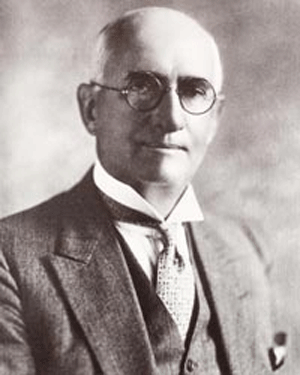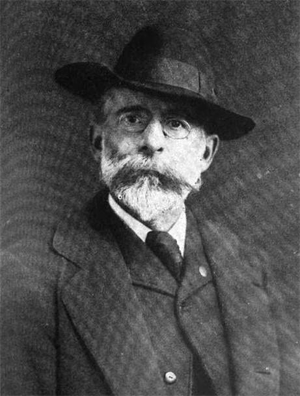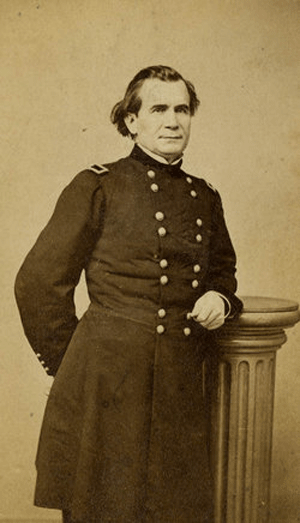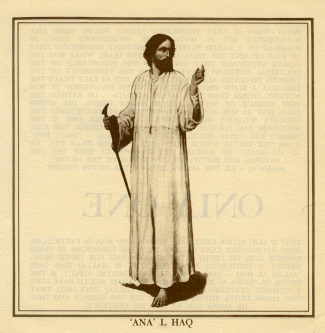by Wikipedia
Accessed: 7/18/18
NOTICE: THIS WORK MAY BE PROTECTED BY COPYRIGHT
YOU ARE REQUIRED TO READ THE COPYRIGHT NOTICE AT THIS LINK BEFORE YOU READ THE FOLLOWING WORK, THAT IS AVAILABLE SOLELY FOR PRIVATE STUDY, SCHOLARSHIP OR RESEARCH PURSUANT TO 17 U.S.C. SECTION 107 AND 108. IN THE EVENT THAT THE LIBRARY DETERMINES THAT UNLAWFUL COPYING OF THIS WORK HAS OCCURRED, THE LIBRARY HAS THE RIGHT TO BLOCK THE I.P. ADDRESS AT WHICH THE UNLAWFUL COPYING APPEARED TO HAVE OCCURRED. THANK YOU FOR RESPECTING THE RIGHTS OF COPYRIGHT OWNERS.
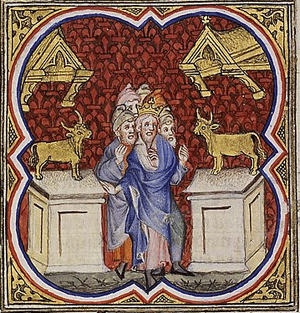
Jeroboam
ירבעם
King of Israel
Illustration of Jeroboam setting up two golden calves, Bible Historiale, 1372.
Reign c. 931 to 910 BC
Predecessor Rehoboam
Successor Nadab, his son
Born unknown
United Kingdom of Israel
Died c. 910 BC
Tirzah, Northern Kingdom of Israel
Spouse Ano (named only in the Septuagint)
House New House, Tribe of Ephraim
Father Nebat
Mother Zeruah
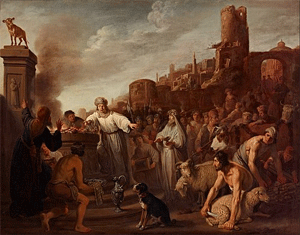
Jeroboam sacrificing to his idol, oil on canvas by Claes Corneliszoon Moeyaert, 1641
Jeroboam I /ˌdʒɛrəˈboʊ.əm/ (Hebrew: יָרָבְעָם Yārāḇə‘ām; Greek: Ἱεροβοάμ, translit. Ierovoám) was the first king of the northern Kingdom of Israel after the revolt of the ten northern Israelite tribes against Rehoboam that put an end to the United Monarchy.
Jeroboam reigned for 22 years. William F. Albright has dated his reign from 922 to 901 BC, while Edwin R. Thiele offers the dates 931 to 910 BC.[1]
Etymology
The name Jeroboam יָרָבְעָם is commonly held to have been derived from riyb רִיב and ʿam עַם, signifying "the people contend" or "he pleads the people's cause". It is alternatively translated to mean "his people are many" or "he increases the people" (from רבב rbb, meaning "to increase"), or even "he that opposes the people". In the Septuagint he is called Hieroboam (Ἱεροβοάμ).[2]
Background
Jeroboam was the son of Nebat (Douay-Rheims: Nabat), a member of the Tribe of Ephraim of Zereda. His mother,[3] named Zeruah (צרוע "leprous") was a widow. (1 Kings 11:26) He had at least two sons, Abijah [4] and Nadab, who succeeded him on the throne.
While still a young man, King Solomon made him superintendent over his tribesmen in the building of the fortress Millo in Jerusalem and of other public works, and he naturally became conversant with the widespread discontent caused by the extravagances which marked the reign of Solomon.[5]
Influenced by the words of the prophet Ahijah (1 Kings 11:29–39), he began to form conspiracies with the view of becoming king of the ten northern tribes; but these were discovered, and he fled to Egypt, where he remained under the protection of pharaoh Shishak until the death of Solomon. After this event he returned and participated in a delegation sent to ask the new king Rehoboam to reduce taxes.[6] After Rehoboam rejected their petition, ten of the tribes withdrew their allegiance to the house of David and proclaimed Jeroboam their king, forming the northern kingdom of Israel (Samaria). Initially, only the tribes of Judah, Simeon and Benjamin remained to form the new kingdom of Judah, loyal to Rehoboam.[7]
The most salient point at which this study differs from virtually everything published on the subject of Mormonism so far is the emphasis placed here on the political and later geopolitical function of Joseph Smith's political agitation against Henry Clay in 1844, and then of Brigham Young's empire of Deseret, as gambits of British imperial policy against the United States. The Mormons were certainly promoted by John Stuart Mill, Thomas Carlyle, and the intelligence division of the British East India Company in London.
There has never been any secret about the cordial support extended to the Confederate States of America by the British Foreign Office. There is now a growing awareness that Confederate secessionism was mightily stimulated by the Southern Jurisdiction of the Scottish Rite Freemasons, who were ultimately a satellite of London. It is time to recognize that Mormon theocracy and Mormon secessionism were just as desirable from the British point of view as the creation of the Confederate state....
Brigham Young's machinations cannot be understood apart from British imperial strategy before and during the American Civil War...
Mormon leadership passed into the hands of Brigham Young, who actually implemented some of Joseph Smith's most daring plans. Following a brief period of regroupment after the slaying of the Prophet, Brigham Young led the Mormons in 1847 to Salt Lake City. At this time, Salt Lake City and the entire Great Basin were part of Mexico. Brigham Young set to work creating an independent country hostile to the United States, and generally oriented in favor of the British Empire. This was the Mormon state of Deseret, a name drawn from the Hebrew word for the honeybee. Deseret was admirably situated to cut the eastern United States off from California, the Oregon Territory, and the Pacific Ocean. Here once again all power -- religious, political, military, economic, and judicial -- was concentrated in the hands of the Mormon supremo, now Brigham Young. Brigham Young was the de facto commander of the military forces. For many years he was governor of the territory, having been appointed by Millard Fillmore. When he was ousted as governor by Buchanan, he fell back on his control of the judiciary, including the judges and juries in the territorial probate courts, which had arrogated to themselves original jurisdiction in all state and federal cases.
When Salt Lake City and the rest of the Great Basin were ceded by Mexico to the United States of America as a result of the treaty ending the Mexican War, and when Americans began crossing the Great Basin on their way to California in the Gold Rush after 1848, Mormon hostility to the United States only increased.
Brigham Young's personal ties to the British Empire included a sojourn of a number of years in England, where he had been sent by Joseph Smith to recruit new members for the church. The fact that this activity was not suppressed by the British government provides an unmistakable indication of British sponsorship, at least in part, for the Mormon project. Mormonism collected defenders, including Thomas Carlyle, John Stuart Mill, and Charles Dickens -- the first two with British intelligence pedigrees. Converts from England, Scotland, and Wales probably constituted the majority of the Mormon Church in the middle of the 19th century....
During the Civil War of 1861-1865, Brigham Young confirmed himself as a hardened traitor to the United States, pouring scorn and invective on Abraham Lincoln and his government, and preparing another bid for secession, especially in case of British intervention in the wake of some landmark Union defeat. President Lincoln, raved Brigham Young, was a "cursed scoundrel." [36] At other times, the Mormon boss stated that Lincoln was "wicked," [37] "subject to the influence of a wicked spirit," [38] and "fully adrift on the current of radical fanaticism." [39]...
But Joseph Smith's cosmic ambitions were not limited to the spiritual realm alone. They also aimed unmistakably at a totalitarian and dictatorial power over the affairs of this world. If modem Wahabites proclaim that all Moslem governments are illegitimate because they do not represent the caliphate prescribed by Mohammed, Joseph Smith and his lieutenants similarly argued that all the governments of the earth are intolerable because they do not represent the Kingdom of God. Joseph Smith proclaimed that he would soon provide a military solution to this problem, and thus set the stage for the Apocalypse. In this sense, a religion like Mormonism can be seen as a universal destabilization of all the existing systems of politics and government. Coming as it did at the zenith of the British Empire, it is not hard to imagine who would benefit from the spread of such a doctrine, and this issue will be addressed....
The Prophet Joseph Smith was born in eastern Vermont, in the valley of the White River. During the I790s there appeared in this state, not far from the Massachusetts border, a utopian and collectivist community of about 40 persons known as the Dorrilites, named after their founder, who, appropriately enough, was a retired redcoat officer from the British Army. Was this Dorril a stay-behind operation of the British Empire? The importance of the Dorrilites is that they offer a substantial repertoire of those organizational and doctrinal features which will later characterize Mormonism. Like the Mormons, the Dorrilites had communist property relations, but no political democracy, since the Britisher Dorril demanded total submission to his divinely inspired commands. He imposed a rigorous regime of vegetarianism, banning even leather shoes. The Dorrilites were accused by local ministers not just of doctrinal deviations, but also of holding bacchanalian orgies....
In June 1835, the British oligarchy established what looks like their first significant contact with the Mormons, with the arrival of Rev. John Hewitt. Hewitt had been dispatched for contact talks by a congregation of charismatic Pentecostalist Christians in Barnsley, England. Their interest had been attracted by a Mormon publication, and the English faithful hailed them as "kindred spirits." The Barnsley group was affiliated with the Catholic Apostolic Church, which enjoyed the support of Foreign Secretary George Canning, and the interest of the famous Victorian man of letters Thomas Carlyle, who was also an admirer of the Mormons. Hewitt's visit raised the question of affiliations and alliances with other religious movements in the 1830s." (Bushman, pp. 270-71) Subsequently, Joseph Smith would order two of his top lieutenants to Britain in 1837, followed by the entire top leadership in 1839-40. From that time on, Great Britain -- and not the United States -- would become the principal source of new converts for the Mormon Saints. The Mormons would become increasingly British in composition and mentality....
On another occasion, the Prophet was visited by the significant British agent, Edwin de Leon, who went on to become a mainstay of the Confederate foreign service. De Leon asked Joseph about the attractive females he observed going in and out of the Prophet's dwelling. Joseph said that these were his nieces. De Leon expressed some skepticism. Then, "There was a slight twinkle in the prophetic eye, as he poked me in the ribs with his forefinger, and rebuked me, exclaiming, 'Oh, the carnal mind, the carnal mind!' and I thought it discreet not to press the subject." [63] (Hirshson, pp. 44-45) On another occasion, the Prophet confessed to an associate, "Whenever I see a pretty woman, I have to pray for grace."...
One of Bennett's most important charges against Joseph Smith was that the Mormons intended to create a secessionist Confederation of Western states and territories, over which Joseph Smith would rule as the King. This puts the Mormon Prophet squarely in the tradition of the arch-traitor Aaron Burr, who had attempted to create his own breakaway Western Empire between 1804 and 1806, taking advantage of the weakness of the Thomas Jefferson administration and of the collusion of Burr's cousin Albert Gallatin, the Secretary of the Treasury. This conspiracy had been sponsored by the British, who would also have been the beneficiaries of Joseph Smith's evolving Western plans. Bennett alleged that the Nauvoo Legion had already acquired 30 cannon and large quantities of small arms at the expense of the state of Illinois. (Brodie, p. 314) With 30 guns mounted in fortified emplacements on the bluffs at Nauvoo, the Mormons would have been able to block traffic on the Mississippi River in something of the way that the Confederates were later to do using the fortress of Vicksburg.
The Nauvoo Legion, said Bennett, had sworn the Danites oath and would obey the commands of the Prophet without question, no matter how illegal they were. Bennett also spoke of a super-secret inner elite within the Danites. These were the Destroying Angels, representing a kind of palace guard with the intelligence function of spying on the adversaries of the Prophet and murdering them, preferably at midnight, while wearing white robes and a red sash. (Brodie, p. 314-15)...
From the profile of Joseph Smith's campaign, which partially mimicked the Henry Clay Whig program of the National Bank and the gradual phasing out of slavery, it is possible to discern that the Mormon Prophet's candidacy would in practice have siphoned votes away from the Whigs, to give victory to the Democrat Polk. In the event, Polk's victory depended on another minor party, the abolitionist Liberty Party of James G. Birney. Slave owners and British imperialists united in their support for Polk, who would strengthen the Slave Power by the admission of Texas into the Union. Henry Clay's 1844 presidential bid may be considered as the last best chance for the United States (apart from the later Zachary Taylor presidency) to reestablish a national bank, restart the process of vigorous economic development which had been interrupted under Jackson and Van Buren, diminish the importance of slavery on the national scene, and thus avoid civil war. From this point of view, Joseph Smith's attempt to construct a countergang against Henry Clay emerges as profoundly dangerous for US national survival....
The British religious and theological establishment deliberately fomented a worldwide wave of religious irrationalism, taking the form of charismatic prophets and prophecies, speaking in tongues, false Messiahs, predictions of the end of the world, and frenetic enthusiasm. The goal in every case was to weaken the social order and spread mass hysteria. In China, Iran, and the United States, these movements became large and powerful enough to pose serious risks to internal stability and even to national survival. British religious currents like the Darbyites, the British Israelites, and the charismatics were all deployed as part of this effort....
In 1832, the state of South Carolina, prefiguring its later role as the official cradle of secessionism, announced its intention to nullify the new federal tariff legislation, which free trade ideologues called the "tariff of abominations." For a while it seemed as if secession and possible civil war might result. After a time, the South Carolina fire eaters decided to back down, and a reprieve of almost three decades on the question of civil war was thus achieved. Joseph Smith responded immediately to these events with his famous Civil War Prophecy of December 25, 1832. Here Joseph Smith forecast:Verily, thus saith the Lord, concerning the wars that will shortly come to pass, beginning at the rebellion of South Carolina, which will eventually terminate in the death and misery of many souls; and the time will come that war will be poured out upon all nations, beginning at this place. For behold, the Southern States shall be divided against the Northern States, and the Southern States will call on other nations, even the nation of Great Britain, as it is called, and they shall also call upon other nations, in order to defend themselves against other nations; and then war shall be poured out upon all nations.
And it shall come to pass, after many days, slaves shall rise up against their masters, who shall be marshaled and disciplined for war. ... and thus, with the sword and by bloodshed the inhabitants of the earth shall mourn; and with famine, and plague, and earthquake, and the thunder of heaven, and the fierce and vivid lightning also, shall the inhabitants of the earth be made to feel the wrath, and indignation, and chastening hand of an Almighty God, until the consumption decreed hath made a full end of all nations .... [90]
The scenario thus developed by the Mormon Prophet substantially corresponds to the strategic intentions of the British Empire in regard to the United States, as displayed during 1861-65. These were to foment a rebellion of the slave states against the Union, and then to arrange an intervention by Britain and possibly France and Spain against the United States. In the event, Anglo-French intervention was prevented by a number of factors, notably the strong support given to the United States by the Russian Empire, the world power which London and Paris had good reason to fear. This 1832 revelation prefigures in many essential details the White Horse Prophecy of almost a dozen years later, in which the Mormon White Horse and the British Red Horse unite against the American Pale Horse and defeat it....
The month of June, 1835 marks the first demonstrable official contact between the Mormon leadership around Joseph Smith and a representative of the British theological-intelligence establishment. This contact was established through a visit to Kirtland, Ohio by the British Reverend John Hewitt. Reverend Hewitt had been sent by a charismatic congregation in Barnsley, England. Reverend Hewitt, who came from the Rotherham Independent Seminary, explained that the Barnsley congregation had seen a Mormon-controlled newspaper which had been brought back to England by a merchant who had been in New York City. Based on this newspaper, the Barnsley group had concluded that the Mormons had common ground with them. The Barnsley letter announced that "The Lord hath seen our joy and gladness to hear that He was raising up a people for Himself in that part of the New World, as well as here." (Bushman, pp. 270-71)
Hewitt proposed an alliance between the Mormons and the Barnsley group. He was able to assure Joseph Smith that many members of his congregation were people of means who could be of great assistance. There was also the distinct possibility that many of the English charismatics would want to come to America. The letter from the Barnsley group promised the Mormon Saints that "many will follow, should he approve of the country, etc., who will help the cause, because the Lord hath favored them with this world's goods." This was a timely offer, since the Mormons were at this time in dire financial straits. The letter also indicated that the Barnsley group was not likely to be deterred by mob attacks and harassment: "we understand that persecution had been great among you, or would be, but we were commanded not to fear, for He would be with us."
Pro-Mormon historians argue that this visit did not lead to further contacts, but there is no doubt that the first official Mormon delegation departed for England less than two years after this first contact was made. That was then followed in 1839 by the transfer of the entire Quorum of the Twelve to England for an intensive program of publishing, fundraising, and recruiting work which made British subjects, be they English, Scottish, or Welsh, the majority of the world Mormon movement. Within a few years after this fateful 1835 encounter, Mormonism had been thoroughly Anglicized, and its dominant temper became decidedly Anglophile.
The curiosity of the Barnsley group about the Mormons had been whetted by parallels in the ecclesiastical apparatus of these two sects. Between 1832 and 1835, charismatic leaders in London, having allegedly received revelations, created a group of twelve apostles, just like the Mormons and at more or less the same time. The selection of the English Twelve Apostles had been completed on July 14, 1835. The Barnsley group also called themselves Saints.
The Bamsley group continued the charismatic-irrational religious revival which had been set into motion through the efforts of a famous London preacher of Scottish background, Edward Irving. Irving had preferred the name "congregations gathered under apostles," but eventually this denomination called itself the Catholic Apostolic Church. Edward Irving was a former Scottish Presbyterian who had been expelled by the Kirk in 1822, and who had thereupon set up shop in the Caledonian Chapel in Hatton Garden, London.
Irving quickly attracted the sympathetic attention of the top levels of the ruling British oligarchy. The chapel had seats for about 500 persons, but, for a time at least, Irving was able to draw two to three times that number. The neighborhood streets were blocked by luxurious carriages: "it has been said that, on one occasion at least, the queue of carriages waiting to return the worshipers to their homes was four miles in length." [91]
Edward Irving was a close friend of the famous British reactionary essayist and man of letters Thomas Carlyle, with whom he had been associated back in Scotland. Carlyle, like James Mill, John Stuart Mill, John Ruskin, and other celebrated British literary figures of the Victorian age, was part of the ideological and cultural control apparatus of the empire. Irving attracted his following in part due to praise he had received during a parliamentary debate in the House of Commons from George Canning, the British Foreign Secretary and future Prime Minister. After Canning had called attention to Irving's church, other members of Parliament, wealthy lawyers and bankers, and clergyman from the English and Scottish established churches flocked to hear the new charismatic message. (Bushman, pp. 271-72)
Support from Canning meant support from the very heart of the British imperial apparatus. George Canning was one of the most powerful British politicians of the Napoleonic era. An associate of William Pitt the younger, he became Undersecretary of State for Foreign Affairs from 1796 to 1799. He then served on the India board between 1799 and 1800. He was in Parliament between 180 I and 1804, when he became Treasurer of the Navy for two years. He was Foreign Secretary between 1807 and 1809, during which time he was associated with the cowardly British sneak attack on the Danish fleet in Copenhagen harbor. After five years in Parliament and two years as British Ambassador to Portugal, he became president of the India Board between 1816 and 1820. After two more years in Parliament, Canning became Foreign Secretary and Leader of the House of Commons, posts which he held from 1822 to 1827. These were the greatest years of Edward Irving's success in London. In 1827, Canning became prime minister, with Lord Lansdowne, the son of the leading oligarch William Petty, the Earl of Shelburne, as a member of his cabinet, but he died suddenly on August 8, 1827.
Along with his rival Castlereagh, Pitt, and the Duke of Wellington, Canning was by any measure one of the leading British oligarchs of the age. His promotion of Edward Irving can be thought of as serving two goals. The first was to increase the degree of religious irrationality in the British ruling class, so as to facilitate the final push for total world domination over the coming few decades. The second aspect was that Canning could see the vast potential of preachers inspired by Irving's brand of charismatic irrationalism for destabilizing and disrupting nations around the world, which otherwise might offer resistance to the triumphant march of the British Empire. The British, in short, promoted Edward Irving for the same reasons that the Venetians promoted Savonarola against Florence and Martin Luther against Germany: to create chaos and conflict, and to weaken strategic rivals to the mother country.
Irving's congregation "was particularly notable for the proportion of professional people that contained lawyers, physicians, actors, artists, diplomats, and men from similar walks of life. They and their fine ladies were drawn in large numbers to his ministry .... England's literary circles were especially well represented." [92]
Frequenters of Irving's Sunday services included famous people like the anti-slavery activist Zachary Macaulay, an associate of Bishop Wilberforce. There was the poet and essayist Charles Lamb, and the philosopher and painter William Hazlitt. In another pew might sit journalist Thomas de Quincy, the author of the sensational Confessions of an English Opium Eater (1821). The romantic poet Samuel Taylor Coleridge, who also dabbled with narcotics, was a friend and admirer of Irving. Another worshiper was the future historian and Whig politician, Thomas Babington Macaulay. William Wordsworth, the future poet laureate, was also a visitor, as was Sir Walter Scott, the leading practitioner of the romantic historical novel and a prime asset of British cultural-political operations, as for example in the American South. The young future Prime Minister William Gladstone attended, and laughed to see the headmaster of Eton College in the crush. A wealthy couple, Mr. and Mrs. Basil Montagu, tried to help Irving find a wife. He was originally interested in Jane Welsh, but she married Thomas Carlyle, and then moved on to Mazzini. [93] British intelligence was a small world at the top.
The Barnsley congregation may be thought of as a kind of contact bureau for the Caledonian Chapel and later Catholic Apostolic Church mother ships, a bureau tasked with keeping in touch with charismatic and apocalyptic movements across Britain and across the Atlantic. The followers of Edward Irving allowed various church members to act as prophets and speak in tongues during the worship services as the spirit moved them. But, Joseph Smith reserved the gift of prophecy to himself alone, and this practice was imitated by his successors such as Brigham Young. Despite these differences, large numbers of Catholic Apostolics transferred to the Mormon Saints....
Another way to see the support given to the Mormons by the elites of the British aristocracy is to examine the attitudes towards them exhibited by some of the leading Victorian men of letters. Given the inherent prudery and bigotry of the Victorian age, one would normally expect a sect of uncouth polygamists in the wilds of North America to be an object of execration among British literary elitists. But, surprisingly enough, the Mormons had powerful supporters, doubtless for anti-American geopolitical reasons. Some of these writers were notoriously linked to the British intelligence establishment, sometimes through the British East India Company. Writers seeking acceptance after about 1870 by a lower middle-class market, such as Sir Arthur Conan Doyle, could portray the Mormons in a negative light, as in A Study in Scarlet, the first of the Sherlock Holmes mysteries. The Mormons also got a bad press in Robert Louis Stevenson's The Dynamiter. By this time, London's hopes for a Mormon version of the Taiping rebellion had cooled, and the mainline of British propaganda was simply to denigrate everything American.
But the more elite pre-1870 writers, with greater intellectual and social pretensions, often showed support for the Mormon Saints. Thomas Carlyle, one of the biggest names, was a warm admirer of Mormondom. So was his colleague, John Stuart Mill of the British East India Company. John Stuart Mill was the son of James Mill, who also claimed to be an economist. James Mill (1773-1836), a direct disciple of the satanic Jeremy Bentham, served for 18 years as the Examiner of Correspondence for the East India Company. This is another way of saying that he was one of the top bosses of British intelligence at that time. The elder Mill's job was to develop an intelligence picture based on the reports he received, and to promote policies to maximize profits and power, often with horrendous consequences for the people of India. The East India Company was much concerned with the manipulation of religious institutions, and systematically promoted the most backward and self-destructive tendencies in Hinduism and Islam, creating distortions which continue down to the present day. Others working for the British East India Company included the monetarist economist David Ricardo and the ideologue of genocide Thomas Malthus. [98]
After working for the British East India Company for 34 years, John Stuart Mill (1806-1873) took over the post of Examiner of Correspondence. The younger Mill directed a vast program of British cultural warfare, with special attention for the United States, which was seen along with Russia as a threat to the British Empire. He sponsored the career of the Scottish feudalist, neo-pagan, and proto-fascist Thomas Carlyle, who in turn became the main guru for Ralph Waldo Emerson of Harvard, the luminary of the Transcendentalist school. Emerson was famous for his concept of "self-reliance," which later morphed into the "rugged individualism" of Herbert Hoover, and the "you're on your own" doctrine of the current Republican Party.
The reactionary essayist Thomas Carlyle represented a younger generation of the British intelligence establishment following in the footsteps of Jeremy Bentham and [url]Thomas Malthus[/url]. Carlyle was so reactionary that he opposed the very timid British Reform Bill of 1867. Reacting to Lincoln's victory in the US Civil War, which had captured the imagination of British workers, it finally allowed urban industrial workers the right to vote. Like Dickens, Carlyle was a great hater of the United States. Carlyle was a close friend of the charismatic Pentecostalist and mystic Edward Irving, to whom he devoted an essay of over 200 pages, which appears in his volume of Reminiscences. [99]
Carlyle was heavily involved in many important British strategic operations of the mid-19th century. One of the principal British political assets of this era was the Italian revolutionary nationalist firebrand Giuseppe Mazzini, who generally used Great Britain as his base of operations. Mazzini's assignment was to destabilize the Austrian, Russian, and Ottoman empires, while making sure that no powerful independent states could ever emerge from their wreckage. Carlyle worked so closely with the Italian provocateur and wrecker that his wife, Jane Welsh Carlyle, became a mistress of Mazzini. Another of Carlyle's important projects was the American transcendentalist movement, and especially its leading light, Ralph Waldo Emerson. Carlyle must count as one of the largest single influences on the Bostonian Emerson. Carlyle presented himself as an expert in German philosophy, which was considered chic by the British upper classes, who of course could read no German. Carlyle thus became the authoritative interpreter of German thought and literature (especially Goethe) in the British Isles. Carlyle is thus a leading example of epistemological warfare and subversive political operations in the Victorian era. Carlyle's draft essay on the Mormons was written in early January, 1854, but never published in his lifetime. It was discovered in the Beinecke Library at Yale and appeared in print for the first time in 1995. It is not known why it was never completed and published, but the essay still speaks for itself. (See appendix C.)
Carlyle was deeply hostile to the United States and to the system of representative government in general. As a reactionary romanticist, he wanted institutions to evolve "organically," meaning that positive change would be either impossible or excruciatingly slow. Carlyle's fascination with the dictatorial regime of Brigham Young is that it had been created in the midst of the hyper-democratic American society of the Jacksonian era, where free speech and other political freedoms were available to many. Democracy had brought forth tyranny. Mormonism he considered better than other religions because it was openly dictatorial and theocratic, and did not pretend to be a democracy:Mormonism is a gross physical form of Calvinism; Gross, physical and in many ways very base; but in this one incommensurably (transcendently) superior to all other forms of religion now extant. That it is believed, that it is practically acted upon from day to day and from hour to hour; taken as a very fact, the neglect or contradiction of which will vitiate and ruin all other facts of the day and of the hour. That is its immeasurable superiority; in virtue of that it has still a root in this feracious [fruitful] Earth, and prospers as we see. [100]
Carlyle harped on the notion that democratic institutions were necessarily slow and inefficient, and not adept at getting things done. He would have applauded Mussolini crushing unions and stripping Italians of their political rights, while famously making the trains run on time. He would have endorsed Mayor Giuliani of New York when he decided to conceal the problems of homelessness and poverty by ordering the police to drive panhandlers off the streets. Carlyle hated the notion of a democratic republic because it was not sufficiently aristocratic, although he had to camouflage his aristocratic prejudices behind a meritocratic facade. He also tried to show that democratic elections generally failed to select the most capable leaders for purposes of governing:Mormonism illustrates: 1° The value of sincerity towards one's convictions (as above); 2° it offers a good illustration of the mixture of Despotism and Liberty, -- indicates, in dim rude outline, what a perfect Form of Government may be which men are several universally groping after at present. Here, sure enough, is Liberty: all these people are free citizens, to begin with; members of the model republic: entitled to the ballot box, caucus, free press, open vestry, open congress, fourth estate and every form of opposition, conceivable by the human mind. -- nothing to limit whatever mutiny may be in them except the universal parish-constable, speaking symbolically. 'Hands not in each other's pockets; hands off each other's skins!' To this degree of liberty, unsurpassable even by fancy they were all born; to this any time they can appeal, and practically return, with themselves and all their interests.
At the time he wrote this draft essay, he was working on his biography of King Frederick the Great of Prussia, whom he subsumed into his general theory of history based on charismatic heroes and hero worship. Carlyle was also a great admirer of the Puritan dictator Oliver Cromwell, and he must have seen the strong similarities between Cromwell and Brigham Young. Carlyle felt that British society was plagued by hypocrisy and was therefore not producing the true heroic type.
-- Just Too Weird: Bishop Romney and the Mormon Takeover of America: Polygamy, Theocracy, and Subversion, by Webster Griffin Tarpley, Ph.D.
Jeroboam rebuilt and fortified Shechem as the capital of the northern kingdom, and fearing that pilgrimages to the temple in Jerusalem prescribed by the Law might be an occasion for his people to go back to their old allegiance, he built two state temples [8] with golden calves, one in Bethel and the other in Dan.[5] Although criticised for his cultic activities in 1 Kings 12:25–33, calf worship was not new in Israelite ritual, but a reintroduction of earlier ritual. Bethel and Dan were already established cultic sites.
According to 1 Kings 13:1–6, while Jeroboam was engaged in offering incense at Bethel, a "man of God" warned him that "a son named Josiah will be born to the house of David", who would destroy the altar (referring to King Josiah of Judah who would rule approximately three hundred years later). Attempting to arrest the prophet for his bold words of defiance, Jeroboam's hand was "dried up", and the altar before which he stood was rent asunder. At the entreaty of the man of God, his hand was restored to him again, but the miracle made no abiding impression on him.[9] Jeroboam offered hospitality to the man of God but this was declined, not out of contempt but in obedience to the command of God.[10] The prophecy is fulfilled in 2 Kings 23:15–16.
This "man of God" who warned Jeroboam has been equated with a seer named Iddo.[11]
In 1 Kings 14, Jeroboam's son Abijah gets sick, and he sends his wife to the prophet Ahijah. Ahijah's message, however, is that Abijah will die, which he does.
War with Judah
Jeroboam was in "constant war with the house of Judah".[12] While the southern kingdom made no serious effort militarily to regain power over the north, there was a long-lasting boundary dispute, fighting over which lasted during the reigns of several kings on both sides before being finally settled.
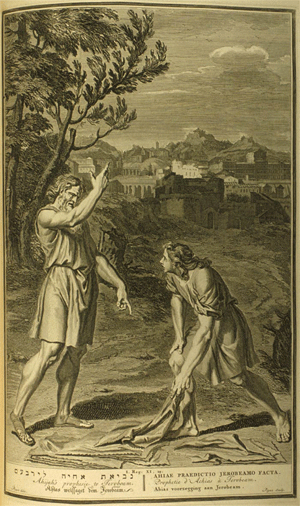
Gerard Hoet, Ahijah's prophecy to Jeroboam, 1728.
In the eighteenth year of Jeroboam's reign, Abijah (also known as Abijam), Rehoboam's son, became king of Judah.[13] During his short reign of three years, Abijah went to considerable lengths to bring the Kingdom of Israel back under his control. He waged a major battle against Jeroboam in the mountains of Ephraim. According to the Book of Chronicles Abijah had a force of 400,000 and Jeroboam 800,000.[14] The Biblical sources mention that Abijah addressed the armies of Israel, urging them to submit and to let the Kingdom of Israel be whole again,[15] but his plea fell on deaf ears. Abijah then rallied his own troops with a phrase which has since become famous: "God is with us as our leader". The biblical account states that his elite warriors fended off a pincer movement to rout Jeroboam's troops, killing 500,000 of them.[16]
Jeroboam was crippled by this severe defeat to Abijah and posed little threat to the Kingdom of Judah for the rest of his reign.[17] He also lost the towns of Bethel, Jeshanah, and Ephron, with their surrounding villages.[18] Bethel was an important centre for Jeroboam's Golden Calf cult (which used non-Levites as priests),[19] located on Israel's southern border, which had been allocated to the Tribe of Benjamin by Joshua, as was Ephron, which is believed to be the Ophrah that was allocated to the Tribe of Benjamin by Joshua.[20]
Jeroboam died soon after Abijam.
Commentary on sources
The account of Jeroboam's life, like that of all his successors, ends with the formula "And the rest of the acts of Jeroboam, how he warred, and how he reigned, behold, they are written in the book of the chronicles of the kings of Israel" (1 Kings 14, 19).
"The Chronicles of the Kings of Israel", likely compiled by or derived from these kings' own scribes, is likely the source for the basic facts of Jeroboam's life and reign, though the compiler(s) of the extant Book of Kings clearly made selective use of it and added hostile commentaries. His family was eventually wiped out.
The prophecies of doom concerning the fall of both the House of Jeroboam and the northern kingdom as a whole ("For the Lord shall smite Israel..., and he shall root up Israel out of this good land, which he gave to their fathers, and shall scatter them beyond the river") might have been composed retroactively, after the events described had already come to pass (this position is a secular or non-literal approach to scripture). Alternately, the prophecy could have been a logical deduction. Judah had just been conquered and turned into a vassal of Egypt, while Israel stood between the Egyptian and Mesopotamian empires.
It is likely that the story of the golden calf in the wilderness (cf. I Kings 12:28 with Ex. 32:4) was composed as a polemic against Jeroboam’s cultic restoration by claiming that its origins were inconsistent with worship of YHWH.[21]
See also
• Jeroboam II
References
1. Edwin Thiele, The Mysterious Numbers of the Hebrew Kings, (1st ed.; New York: Macmillan, 1951; 2d ed.; Grand Rapids: Eerdmans, 1965; 3rd ed.; Grand Rapids: Zondervan/Kregel, 1983). ISBN 0-8254-3825-X, ISBN 9780825438257
2. "Study dictionary: Jeroboam". NeXtBible Learning Environment. Archived from the original on 2007-03-15. Source of transliterations and explanation of significance.
3. An alternate interpretation of the English text, claims Zeruah was the grandmother of Jeroboam, being the mother of Nebat. But this is not supported by the Hebrew source. Additionally throughout the Books of Kings, it is standard practice to also list the names of kings' mothers, on the occasion of the beginning of their reign.
4. 1 Kings 14:1
5. Driscoll, James F. "Jeroboam". The Catholic Encyclopedia. Vol. 8. New York: Robert Appleton Company, 1910. 6 Jan. 2014
6. Encyclopaedia Judaica | second edition | vol 11 | pg 142 | authors Bustanay Oded / S. David Sperling (2nd ed.)
7. Encyclopaedia Judaica | second edition | vol 11 | pg 142 | authors Bustanay Oded / S. David Sperling (2nd ed.
8. Collins, John J., A short introduction to the Hebrew Bible, Fortress Press (2007), p. 47
9. 1 Kings 13:33
10. Gill, J., Gill's Exposition of the Entire Bible on 1 Kings 13, accessed 19 October 2017
11. "IDDO - JewishEncyclopedia.com". http://www.jewishencyclopedia.com.
12. Smith's Bible Dictionary: Jeroboam, accessed 2 August 2017
13. 2 Chronicles 13:1
14. 2 Chronicles 13:3
15. 2 Chronicles 13:4–12
16. 2 Chronicles 13:17
17. 2 Chronicles 13:20
18. 2 Chronicles 13:19
19. 1 Kings 12:25–33
20. Joshua 18:20–28, esp. 23
21. Encyclopaedia Judaica | second edition | vol 11 | authors Bustanay Oded / S. David Sperling (2nd ed.) | pg 142
External links
• Jeroboam at the Jewish Encyclopedia

